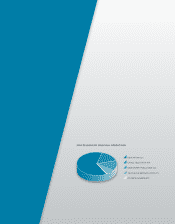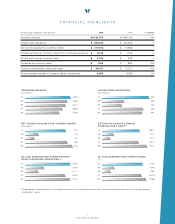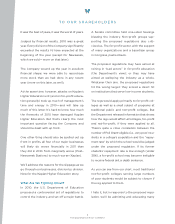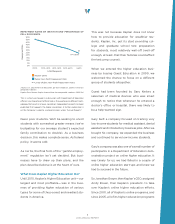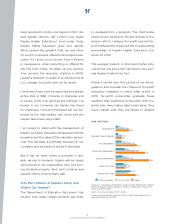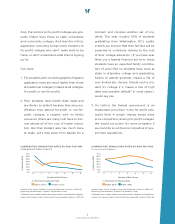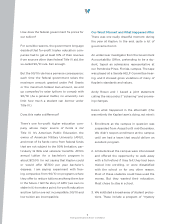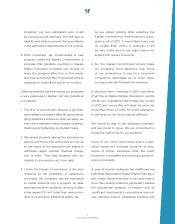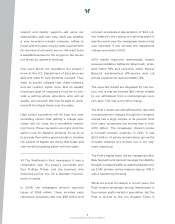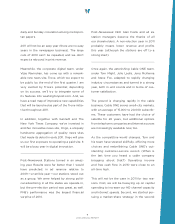Washington Post 2010 Annual Report Download - page 10
Download and view the complete annual report
Please find page 10 of the 2010 Washington Post annual report below. You can navigate through the pages in the report by either clicking on the pages listed below, or by using the keyword search tool below to find specific information within the annual report.
8
THE WASHINGTON POST COMPANY
student and faculty support—will serve our
shareholders well over time. We’ll see whether
a very long-term-minded company, willing to
invest with the years, may be quite a good home
for the kind of university we run. We want to be
a valuable business for the long term, but we are
not driven by quarterly earnings.
One word about our regulators: the people I
know at the U.S. Department of Education are
able and want to help students succeed. They
want to punish colleges that cheat students,
and we couldn’t agree more. But an equally
important goal of regulators must be to pro-
vide a setting where educators who aim at
quality can succeed. We look forward to work-
ing with the Department over the years.
High school counselors will be busy this year,
reminding seniors that getting a college edu-
cation will, for most, be a wonderful, reward-
ing choice. These counselors are right. And, the
same is true for Kaplan’s students. It’s up to us
to provide them with a good education. I believe
the people of Kaplan are doing that today and
that we will be getting better with the years.
At The Washington Post newspaper, it was a
remarkable year. The paper’s journalists won
four Pulitzer Prizes, and the business side
deserved a prize, too, for a dramatic improve-
ment in results.
In 2009, the newspaper division reported
losses of $164 million: these included early
retirement programs that cost $58 million and
noncash accelerated depreciation of $34 mil-
lion related to the closing of a printing plant. It
was the worst year the newspaper division had
ever reported, if you exclude the impairment
charge recorded in 2008.
2010 results improved dramatically, largely
because publisher Katharine Weymouth, presi-
dent Steve Hills and executive editor Marcus
Brauchli implemented eciencies and cut
annual expenses by approximately 12%.
The reported results are disguised by two fac-
tors: one is that we booked $20 million related
to our withdrawal from a multiemployer pen-
sion plan. This was a one-time charge.
The Post’s results are also aected by reported
noncash pension charges, though the Company
overall has a large surplus in its pension fund
(not many companies are writing that in their
2010 letter). The newspaper division books
a noncash pension expense; in 2010, it was
$21.9 million. I’d advise shareholders: ignore the
noncash expense (it’s broken out in our seg-
ment reporting).
The Post’s digital team, led by managing editor
Raju Narisetti and general manager Ken Babby,
brought increased trac to washingtonpost.com,
up 6.5%; division online revenue was up 14%. It
was a heartening showing.
While we’ve lost circulation in recent years, the
Post remains amazingly strong. Washington is
the number eight market in population, but the
Post is second to the Los Angeles Times in


